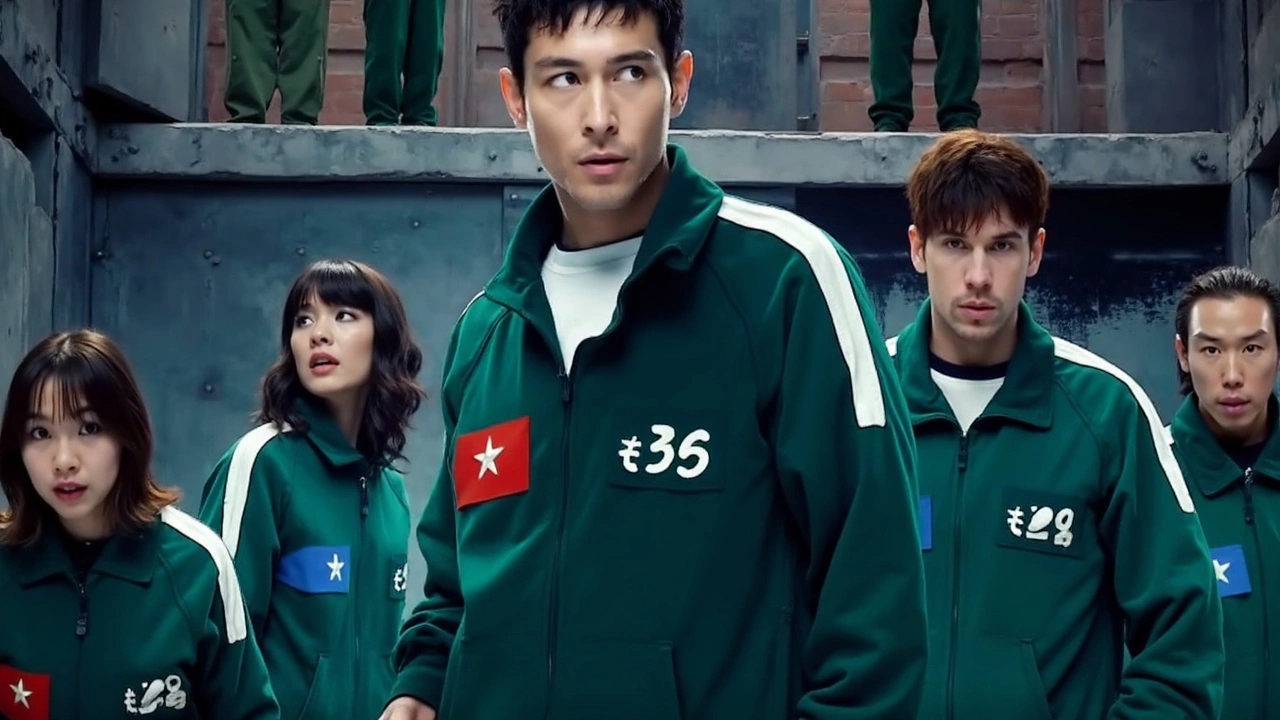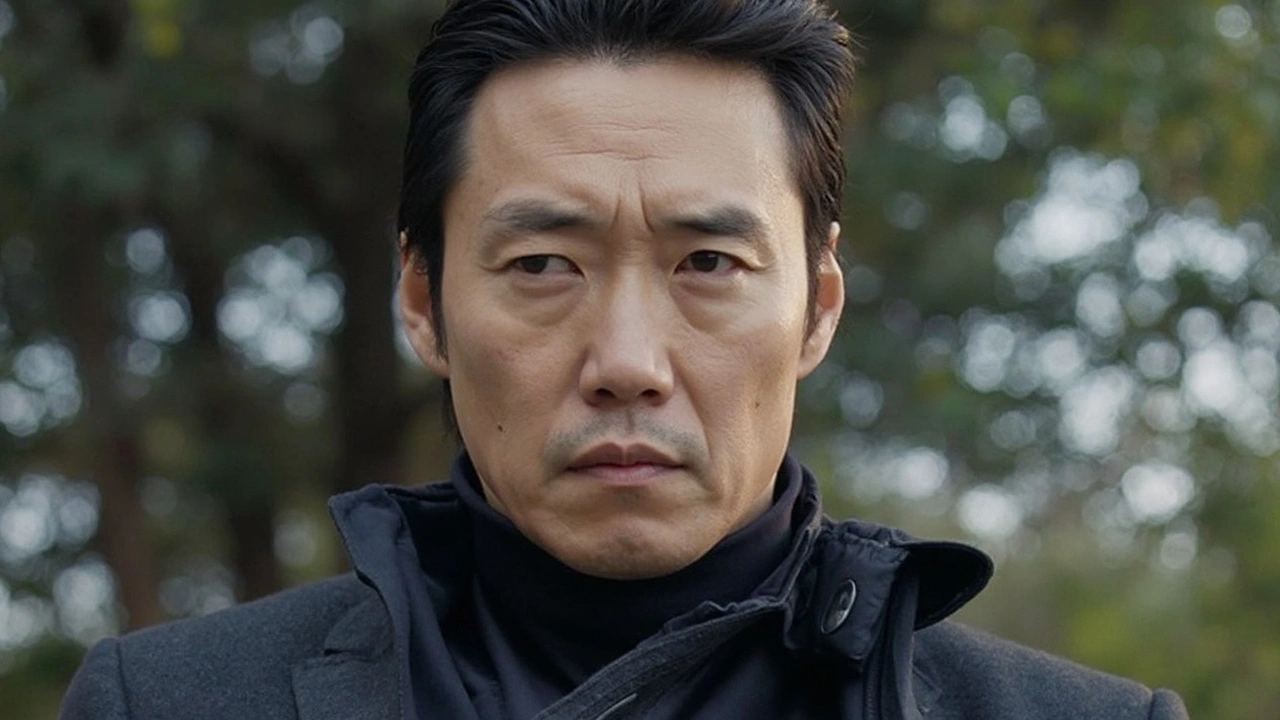The Front Man’s Transformation in Squid Game Season 3
Squid Game has never been gentle with its characters, but Season 3 is turning up the heat in unexpected ways. Squid Game fans are buzzing after Lee Byung-hun peeled back the curtain on the mysterious Front Man. No longer just the mask-wearing villain orchestrating chaos, he’s morphing into a genuinely conflicted figure. Season 3 doesn’t just show the games—it puts the people running them under a microscope.
Lee Byung-hun didn’t hold back in a recent reveal. According to him, the Front Man is a whole different beast this season. Where we once saw a guy completely detached from the players’ pain and desperation, there’s now a flicker of internal struggle. You see it strongest when he’s forced to execute Jung-bae, one of Gi-hun’s closest allies, right before Gi-hun’s eyes. What’s wild is that this wasn’t just cold cruelty. Lee says the Front Man hoped Gi-hun could somehow hold onto hope, even as every move tries to destroy him. The execution was both a test and a twisted encouragement—it’s psychological, not just physical, warfare.
This move marks a big change for the Front Man, bringing out layers that fans might not have expected. He’s supposed to crush the contestants’ spirits, yet part of him wants to see if people can actually rise above the hellish system. That push and pull, the moments where he almost roots for Gi-hun even as he breaks him, adds a whole new layer of suspense. The character isn’t just evil for the sake of evil. There’s a ton going on in his head, and you feel it in every tense encounter with the players.

A Cast and Creator Hooked on Human Complexity
If you’re excited about Season 3’s cast, get ready for some familiar faces and fresh challenges. Lee Jung-jae returns as the battle-scarred Gi-hun, alongside Wi Ha-joon as Jun-ho, Park Sung-hoon as Player 120, Yim Si-wan as Player 333, and Kang Ha-neul as Player 388. The crew’s chemistry, on and off set, is fueling this new layer of storytelling, making each character pop.
Of course, the mastermind behind it all, Hwang Dong-hyuk, is still steering the ship as writer, director, and executive producer. He’s the guy making sure the show doesn’t lose its razor-sharp look at social breakdown and the blurred edges between good and evil. The show’s still impressing critics, too—just look at that steady 89% Rotten Tomatoes score. It’s proof that diving into the complicated messiness of its characters, rather than settling for simple good-and-bad labels, works with viewers.
Lee Byung-hun’s take on his own character makes one thing clear: in Squid Game, nobody is ever just what they seem. Even the man behind the mask has doubts, regrets, and traces of empathy tucked away in his poker face. The Front Man is bleeding humanity into a world built on its absence—and that’s going to make every face-off in Season 3 even tenser.

mary oconnell
June 27, 2025 AT 05:30Alright, let’s unpack this Front Man metamorphosis with a pinch of sarcasm and a dash of academic jargon. The dude used to be the quintessential embodiment of dystopian utilitarianism, now he’s sprouting a sliver of existential dread – it’s like watching a Machiavellian Venn diagram collapse into a therapy session. I appreciate the inclusive narrative that tries to humanize a villain, but don’t let the sentimentality drown the brutal socioeconomic critique that made Squid Game iconic. In plain English: the show is attempting to add layers without ruining the core premise, which is a tightrope walk between profundity and pretension. If you can parse the subtext, you’re basically a literary therapist for serial killers.
Michael Laffitte
June 27, 2025 AT 06:20Dude, this is straight fire! The Front Man flipping from cold calculator to conflicted soul is like the ultimate drama twist, and I’m here for it. It’s like watching a horror movie turn into a tragic romance – the stakes just got a whole lot higher. Hwang Dong‑hyuk really nailed the emotional rollercoaster, making us care about the puppet master while still fearing him.
sahil jain
June 27, 2025 AT 07:26Wow, the Front Man’s new vibe is intense – you can really feel the internal battle. It’s like he’s got a split‑screen of cruelty and curiosity playing at the same time. This adds a fresh dimension to the series that keeps me glued to every episode 😊.
Bruce Moncrieff
June 27, 2025 AT 08:00Totally feels like the series just leveled up.
Dee Boyd
June 27, 2025 AT 08:33While I commend the attempt at moral complexity, the Front Man’s ‘conflicted’ portrayal borders on the ethically untenable. It's a veneer that glosses over systemic exploitation, substituting genuine critique with a pseudo‑humanist narrative that feels disingenuous.
Carol Wild
June 27, 2025 AT 09:40Okay, hear me out: the whole Front Man shift is not just a creative decision, it’s a calculated move by the production to embed a hidden agenda within the narrative. The timing aligns perfectly with a surge in corporate sponsorships that thrive on the notion of “redeeming the villain.” You see, by injecting a sliver of empathy, the show subtly endorses the idea that even the most ruthless operators can be “reformed,” which is exactly the message big tech wants us to internalize. It’s a classic case of cultural engineering, where the audience is conditioned to accept the moral flexibility of power structures. Moreover, the inclusion of a conflicted Front Man mirrors the public relations strategies of conglomerates that now claim to be “socially responsible.” This is not coincidence; it’s a deliberate canvas on which the producers paint a narrative that softens the perception of authoritarianism. Add to that the strategic placement of scenes where the Front Man watches Gi‑hun struggle, which serves as a visual metaphor for the surveillance state watching its citizens. This visual rhetoric is designed to normalize invasive oversight under the guise of a “testing” environment. It’s a Trojan horse of storytelling, where the emotional hook distracts viewers from the underpinning critique of capitalism’s predatory games. The writers, aware of their influence, embed these cues to foster a subtle acceptance of systemic inequity. Historically, such narrative manipulations have been employed to align public sentiment with elite interests, from wartime propaganda to modern consumer culture. In this sense, Squid Game is less about entertainment and more about conditioning - a sociopolitical experiment wrapped in high‑budget drama. One could argue that the series is an extension of the very system it pretends to critique, acting as a feedback loop that reinforces the status quo. So, when you watch the Front Man’s “human” moments, remember you’re also witnessing a masterclass in soft power, where empathy is weaponized to perpetuate the very structures that cause suffering. The takeaway? Don’t be fooled by the veneer of depth; it’s a sophisticated narrative smokescreen that serves the interests of those who profit from the game.